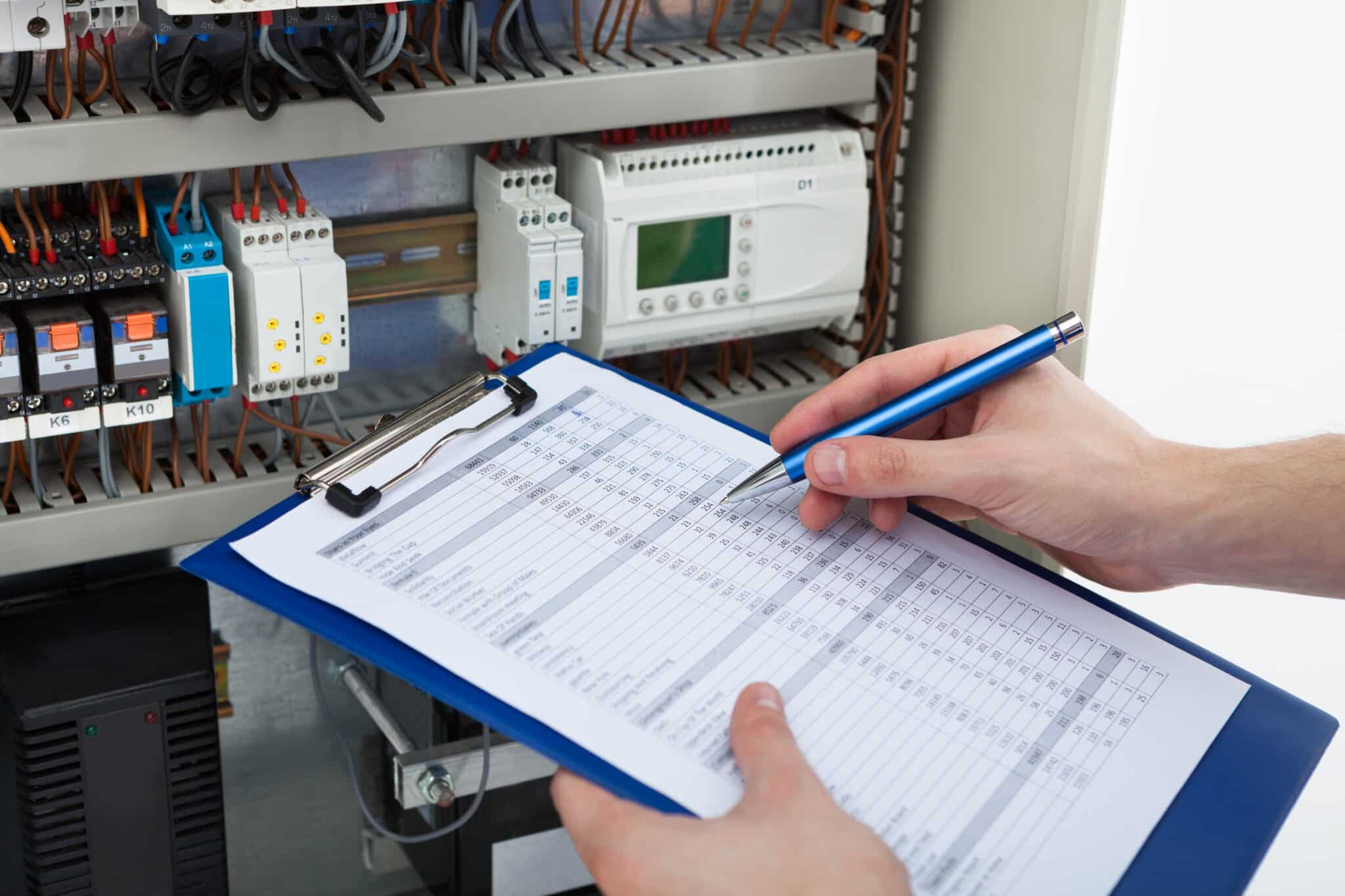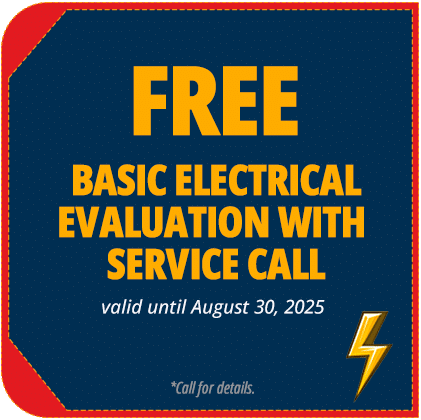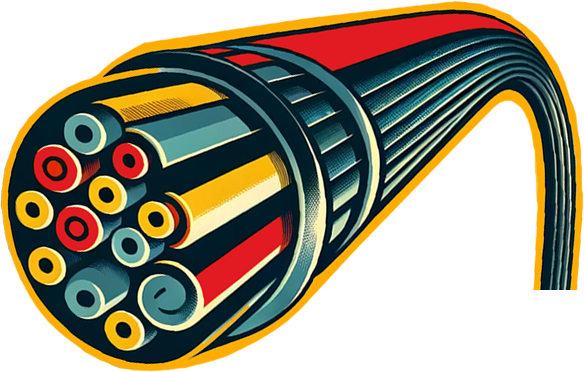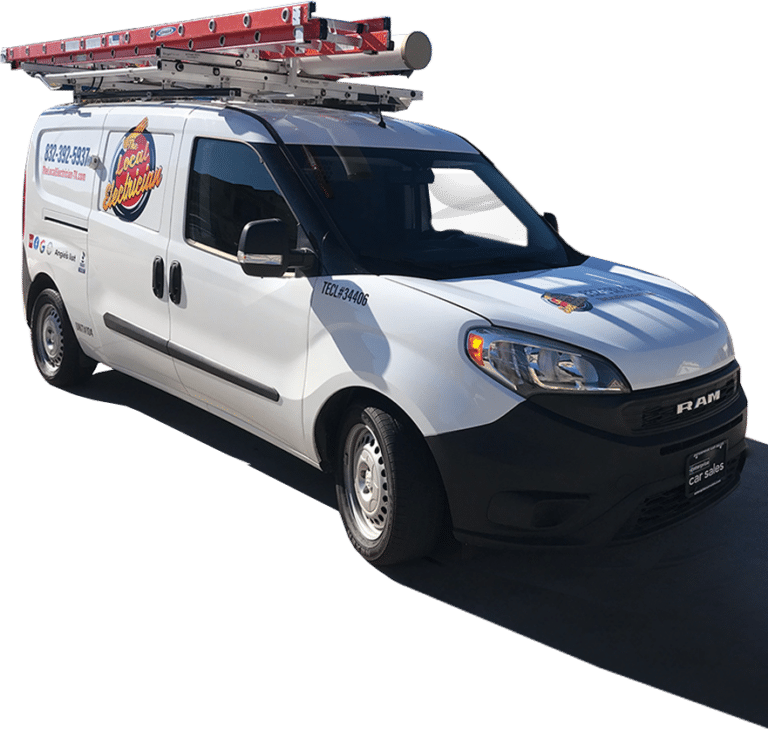Are you concerned about the electrical safety of your older home? Understanding the risks and taking preventive measures is crucial to keeping your home and family safe.
Whether you live in Katy, TX, Richmond, TX, or beyond, this guide will help you identify common issues, recognize signs of electrical problems, and implement essential safety tips for your older electrical systems. Let’s dive into how you can protect your home today.
Understanding the Risks of Older Electrical Systems
Older homes often come with a unique charm, but they can also hide several electrical issues. Wiring systems installed decades ago may not handle the electrical demands of today’s technology.
Common problems include outdated wiring, corroded connections, and insufficient grounding.
These issues can lead to frequent electrical problems and even pose serious safety hazards. Addressing these issues is crucial to ensure the safety of your home and family.
How can you tell if your home has electrical issues? Look for warning signs such as flickering lights, frequent circuit breaker trips, and outlets that are warm to the touch.
Other indicators include buzzing sounds from electrical outlets or switches and a burning smell. These signs should not be ignored, as they can signal underlying problems that need immediate attention. Prompt action can prevent minor issues from becoming major hazards.

Common Electrical Hazards in Older Homes
Outdated Wiring
One of the most common hazards in older homes is outdated wiring. Homes built several decades ago might still have knob-and-tube or aluminum wiring, which can degrade over time and become a fire hazard.
Modern electrical systems use more durable and safer materials, so updating your wiring is essential. Replacing old wiring can significantly reduce the risk of electrical fires. This upgrade ensures that your home meets current safety standards.
Overloaded Circuits
Older homes were not designed to handle the vast number of electrical devices we use today. This can lead to overloaded circuits, causing frequent trips to the breaker and posing a fire risk.
Overloaded circuits occur when too many devices are plugged into one circuit, demanding more power than it can handle.
Upgrading your electrical panel can help manage the load effectively. This upgrade will ensure that your electrical system can handle modern demands safely.
Faulty Outlets and Switches
Faulty outlets and switches are another common issue in older homes. If you notice that your outlets are sparking, loose, or discolored, it’s a sign they need to be replaced.
Faulty outlets can lead to electrical shocks or fires, so it’s crucial to address these problems immediately.
Regular inspections can help identify and fix these issues early. Ensuring all outlets and switches are in good condition is essential for maintaining electrical safety.
Lack of Ground Fault Circuit Interrupters (GFCIs)
GFCIs are designed to protect you from electrical shocks by shutting off the power when they detect an imbalance in the electrical current.
Older homes often lack these essential safety devices, especially in areas like kitchens, bathrooms, and outdoor spaces where water is present. Installing GFCIs is a simple upgrade that can significantly enhance your home’s safety.
This small change can make a big difference in preventing electrical accidents. Prioritizing the installation of GFCIs in high-risk areas is a smart safety measure.
Essential Electrical Safety Tips for Older Homes
Regular Inspections
Regular electrical inspections are vital for ensuring the safety of your home. A licensed electrician can identify and fix potential issues before they become serious problems.
Aim to have your home’s electrical system inspected every few years, especially if it’s an older home. Regular check-ups can prevent minor issues from escalating into major hazards. This proactive approach helps maintain a safe living environment.
Upgrading Electrical Panels
Upgrading your electrical panel is another important step. Older panels may not support the power needs of modern appliances and devices. A new panel can handle more circuits, reduce the risk of overloaded circuits, and improve overall electrical safety.
This upgrade ensures your home can meet modern electrical demands safely. It also provides peace of mind knowing your system is up to date.
Ground Fault Circuit Interrupters (GFCIs)
As mentioned earlier, GFCIs are crucial for preventing electrical shocks. Ensure that GFCIs are installed in all areas where water is present, such as kitchens, bathrooms, and outdoor outlets.
They are a simple but effective way to protect your family. Installing GFCIs enhances safety by shutting off power during electrical faults. Prioritizing GFCIs can prevent dangerous accidents.
Ensuring Proper Grounding
Proper grounding is essential for electrical safety. Grounding helps prevent electrical shocks and fires by providing a safe path for electricity to follow.
If your home has older wiring, it might not be properly grounded. Have an electrician check and upgrade the grounding if necessary. Ensuring proper grounding protects your home and its occupants from potential electrical hazards.
Preventative Measures for Electrical Safety
Safe Use of Electrical Appliances
Using appliances safely can prevent many electrical issues. Avoid overloading outlets with multiple devices and always unplug appliances when not in use. Follow the manufacturer’s instructions for all electrical devices to ensure safe operation.
Regularly inspect cords and plugs for damage. If you notice any frayed wires or other issues, replace the appliance or have it repaired by a professional.
Proper Lighting Solutions
Using proper lighting solutions can also enhance safety. Ensure that all light fixtures are appropriately rated for the wattage of the bulbs they hold. Replace any outdated or damaged lighting fixtures and consider installing LED lights, which are safer and more energy-efficient.
Proper lighting reduces the risk of overheating and electrical fires. It also provides better illumination, which can prevent accidents.
Surge Protectors and Power Strips
Surge protectors and power strips are essential for protecting your electronics from power surges. Use surge protectors for all valuable electronics, such as computers and TVs.
Avoid daisy-chaining multiple power strips together, as this can overload circuits. This practice ensures that your devices are safeguarded against electrical spikes. Additionally, it helps extend the lifespan of your electronics by preventing damage from sudden surges.

The Importance of Professional Electrical Inspections
Hiring a Licensed Electrician
Hiring a licensed electrician is crucial for any electrical work in your home. Licensed electricians have the knowledge and experience to perform safe and effective repairs and upgrades.
Always verify the electrician’s credentials before hiring. This ensures that the work meets safety standards and local codes.
A qualified electrician can prevent potential hazards and ensure your system is reliable. By choosing a licensed professional, you can trust that the work will be done correctly and safely, giving you peace of mind.
What to Expect During an Inspection
During an electrical inspection, the electrician will check your entire system for potential issues. This includes examining the wiring, outlets, switches, and electrical panel. They will identify any code violations and recommend necessary repairs or upgrades.
An inspection provides a comprehensive assessment of your home’s electrical safety. Addressing issues found during an inspection can prevent future problems.
The electrician may also offer suggestions for improving your system’s efficiency and safety, ensuring that your home is up to date with the latest electrical standards.
Frequency of Inspections
Regular inspections are key to maintaining electrical safety. For older homes, aim to have an inspection every three to five years. If you notice any signs of electrical problems, schedule an inspection immediately.
Regular inspections can catch issues early before they become major hazards. Staying proactive with inspections ensures ongoing safety and efficiency.
In addition to routine checks, consider scheduling an inspection after any significant renovations or if you add new major appliances to your home, as these changes can impact your electrical system’s performance.
Upgrading Electrical Systems in Older Homes
Benefits of Modern Electrical Systems
Upgrading to a modern electrical system offers numerous benefits. It enhances safety, improves energy efficiency, and supports the electrical demands of contemporary appliances and devices.
Modern systems are also more reliable, reducing the risk of frequent outages. This upgrade can lead to lower energy bills and increased home value. Overall, it provides peace of mind knowing your electrical system is up to current standards.
Steps for Upgrading
The process of upgrading an electrical system involves several steps. First, an electrician will assess your current system and identify areas that need improvement.
Next, they will replace outdated wiring, install new circuits, and upgrade the electrical panel. Finally, they will ensure that the entire system meets current safety codes.
This thorough approach ensures a comprehensive upgrade that enhances overall safety and functionality.
DIY Electrical Safety Checks
Simple Checks Homeowners Can Perform
Homeowners can perform simple checks to ensure electrical safety. Regularly test your GFCIs to make sure they are functioning correctly. Check for any signs of wear and tear on electrical cords, and make sure outlets and switches are not hot to the touch.
These simple checks can help you identify electrical safety issues early. Early detection can prevent more significant problems and keep your home safe by maintaining electrical safety standards.
Tools You Might Need
To perform DIY electrical safety checks, you will need a few basic tools. These include a voltage tester, a circuit tester, and a flashlight. These tools can help you safely check for electrical safety issues without needing to open any panels or wiring.
Having the right tools makes it easier to perform thorough electrical safety inspections. Always use these tools as instructed to ensure electrical safety while conducting checks.
When to Call a Professional
While DIY checks are helpful, some issues require professional attention. If you encounter any signs of serious electrical safety problems, such as frequent circuit breaker trips, flickering lights, or burning smells, call a licensed electrician immediately.
Attempting to fix major issues yourself can be dangerous. A professional can safely diagnose and repair the problem, ensuring electrical safety. Knowing when to call for help is crucial for maintaining electrical safety in your home.
Preventing Electrical Fires
Fire Safety Equipment
Having the right fire safety equipment is crucial. Install smoke detectors in every room and test them regularly. Keep a fire extinguisher in easily accessible locations, such as the kitchen and garage.
Regularly check the expiration dates on fire extinguishers to ensure they are functional. This preparedness can make a significant difference in preventing and responding to fires.
Proper Use of Extension Cords
Use extension cords properly to prevent fires. Never overload extension cords or use them as a permanent solution. Make sure they are in good condition and rated for the devices they are powering.
Avoid running extension cords under carpets or through doorways where they can be damaged. Proper use of extension cords reduces the risk of electrical fires.
Managing Flammable Materials
Keep flammable materials away from electrical devices and outlets. Store them in safe locations and avoid cluttering areas around electrical equipment. Properly managing flammable materials reduces the risk of fire.
Regularly inspect and organize storage areas to ensure flammable items are safely kept. This simple step can prevent dangerous fire hazards.
Safe Practices for Outdoor Electrical Systems
Maintaining Outdoor Wiring
Maintaining outdoor wiring is essential for safety. Ensure that all outdoor wiring is properly insulated and protected from the elements. Regularly inspect outdoor outlets and replace any damaged wiring.
This helps prevent electrical shorts and potential fire hazards. Proper maintenance extends the lifespan of your outdoor electrical system.
Safe Use of Outdoor Lighting
Use outdoor lighting safely by choosing fixtures that are rated for outdoor use. Ensure that all connections are weatherproof and that lighting is installed away from water sources.
This helps prevent electrical shocks and fire hazards. Proper outdoor lighting enhances safety and security around your home. Regularly check and maintain the fixtures to ensure they are in good working order.
Weatherproofing Electrical Outlets
Weatherproofing outdoor electrical outlets protects them from rain and moisture. Use outlet covers and ensure that all connections are sealed properly. This prevents water from entering the outlet and causing short circuits.
Weatherproof outlets reduce the risk of electrical malfunctions. Ensuring your outlets are properly weatherproofed is a simple yet crucial step in maintaining outdoor electrical safety.
Emergency Preparedness for Electrical Issues
Creating an Emergency Plan
Having an emergency plan is essential for electrical safety. Make sure everyone in your household knows what to do in case of an electrical emergency.
This includes knowing where the main electrical shut-off is located. Practicing the plan regularly can ensure everyone is prepared. Being ready can make a big difference during a real emergency.
Identifying Emergency Shut-off Locations
Identify and clearly mark all emergency shut-off locations in your home. Ensure that everyone knows how to shut off the electricity in case of an emergency.
This can prevent accidents and injuries during an electrical crisis. Clear labeling helps even in a panicked situation. Quick action can minimize damage and keep everyone safe.
Emergency Contact List
Keep an emergency contact list that includes the numbers for your electrician, local fire department, and utility company. Having these numbers handy can help you quickly address any electrical emergencies.
Store this list in an easily accessible location, like near the main electrical panel. Ensure all household members know where to find it. Quick access to these contacts can expedite emergency responses.
Don’t Risk It! Ensure Electrical Safety with The Local Electrician
Are you worried about the electrical safety of your home in Katy, TX, or Richmond, TX? The Local Electrician is here to help!
Our licensed electricians provide thorough inspections and top-quality upgrades to keep your home safe.
Don’t wait until it’s too late – contact us today for a safer, more reliable electrical system. Call now at 346-483-7150 to schedule your appointment and ensure peace of mind.
Frequently Asked Questions
How often should I have my electrical system inspected?
It’s recommended to have your electrical system inspected every three to five years, especially in older homes. Regular inspections are crucial for maintaining electrical safety and preventing serious problems.
What are the signs of faulty wiring?
Signs of faulty wiring include flickering lights, warm outlets or switches, buzzing sounds, and a burning smell. If you notice any of these, contact a licensed electrician immediately to ensure your electrical safety.
Can I perform electrical upgrades myself?
While you can perform simple electrical checks, it’s best to hire a licensed electrician for any upgrades or major repairs. Professional electricians ensure that work is done safely and meets current codes.
What should I do if my circuit breaker keeps tripping?
If your circuit breaker keeps tripping, it may indicate an overloaded circuit or a short circuit. Try unplugging some devices and see if the issue persists. If it does, call a licensed electrician to investigate the problem.
Are GFCIs necessary in all areas of my home?
GFCIs are particularly important in areas where water is present, such as kitchens, bathrooms, and outdoor spaces. They help prevent electrical shocks by shutting off power when an imbalance is detected.






























